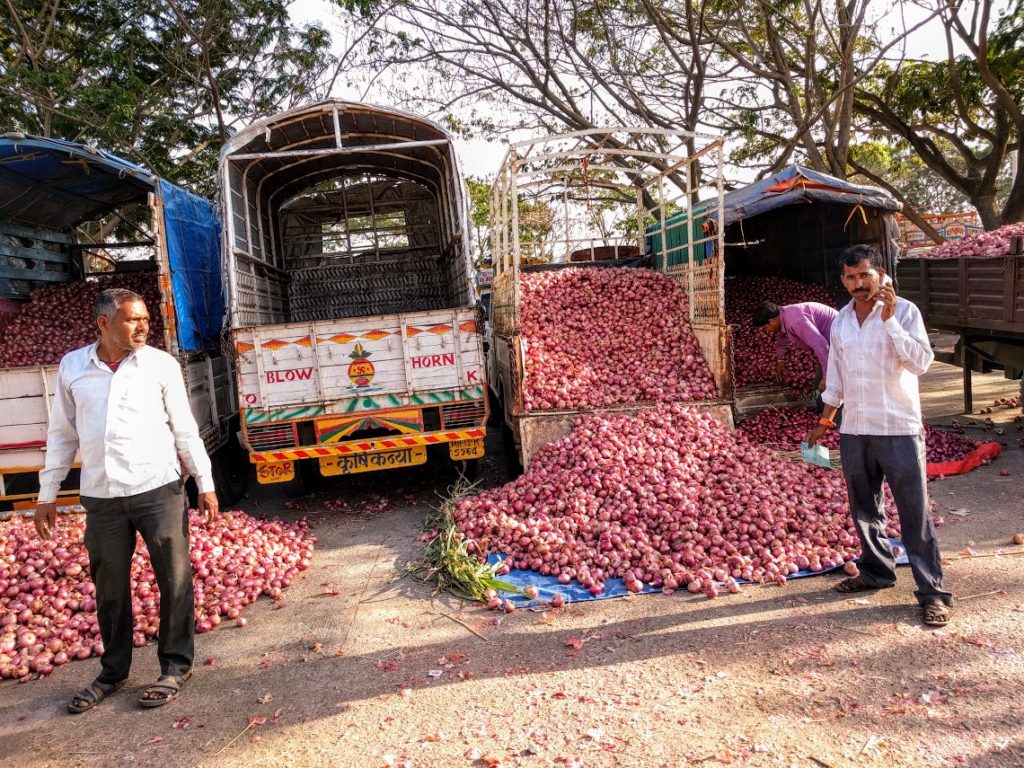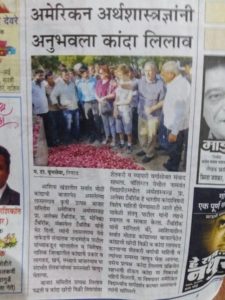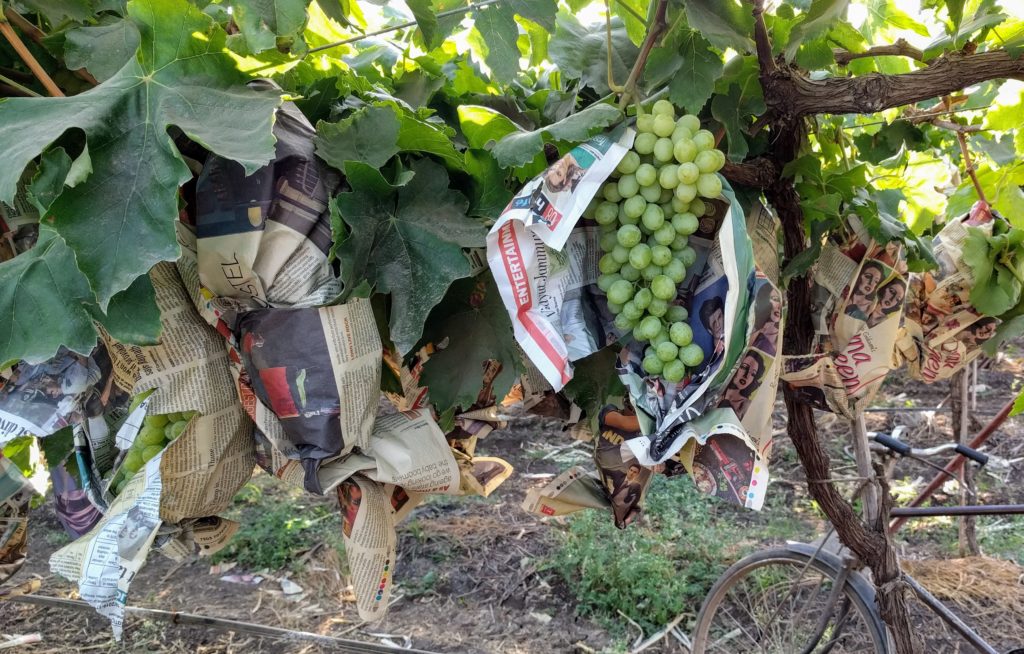Results for “lagos” 51 found
Tuesday assorted links
1. Learning to love Lagos. And new copies of the Gospels from the Ethiopian desert.
2. I am pleased to have recently met Melissa Kearney. And an intervention to increase the number of women in economics. AEA acts on transparency and gender issues.
4. Do black politicians matter?
5. Jason Furman on tax reform. And: “The question I first posed was what to make of a president who is rhetorically unfit yet mainstream in policy.” — from Martin Gurri. And a superb David Brooks column.
6. Review of Tesla Model 3. And Christina Cacioppo reviews various books.
Sunday assorted links
A City on the Hill
The Redeemed Christian Church of Nigeria has built its own private city.
A 25-megawatt power plant with gas piped in from the Nigerian capital serves the 5,000 private homes on site, 500 of them built by the church’s construction company. New housing estates are springing up every few months where thick palm forests grew just a few years ago. Education is provided, from creche to university level. The Redemption Camp health centre has an emergency unit and a maternity ward.
On Holiness Avenue, a branch of Tantaliser’s fast food chain does a brisk trade. There is an on-site post office, a supermarket, a dozen banks, furniture makers and mechanics’ workshops. An aerodrome and a polytechnic are in the works.
…“If you wait for the government, it won’t get done,” says Olubiyi. So the camp relies on the government for very little – it builds its own roads, collects its own rubbish, and organises its own sewerage systems. And being well out of Lagos, like the other megachurches’ camps, means that it has little to do with municipal authorities. Government officials can check that the church is complying with regulations, but they are expected to report to the camp’s relevant office. Sometimes, according to the head of the power plant, the government sends the technicians running its own stations to learn from them.
There is a police station on site, which occasionally deals with a death or the disappearance of a child, but the camp’s security is mostly provided by its small army of private guards in blue uniforms. They direct traffic, deal with crowd control, and stop children who haven’t paid for the wristband from going into Emmanuel Park – home to the aforementioned ferris wheel.
As in Gurgaon, India, where the government fails opportunities are opened for entrepreneurs who think big.
Wednesday assorted links
Tuesday assorted links
1. “We find that relative to males in the same cohort, female economists are less likely (by about 14%) to have received tenure and promotion eight years post-graduation.” And Kevin says reforming tenure is not nearly enough.
2. Most legacy applicants fits the academic profile of the colleges to which they are admitted. I would stress this is a) revenue-maximizing, b) still deeply unfair, c) still pragmatically a good thing, and d) an indictment of how institutions currently think about “academic profile.”
3. On the origin of municipal segregation ordinances.
4. The new Shanghai rankings for economics departments. GMU Law also in the top 30. And Lynne Kiesling moves to Purdue, congratulations!
5. How will Lagos cope with its population?
6. David Brooks on moderates (NYT).
What I’ve been reading
1. Michael J. Klarman, The Framers’ Coup: The Making of the United States Constitution. Excellent author, the chapters on the time period before the Constitution are good enough to make the “best books of the year list,” the rest is a much above-average summary and distillation, but of more familiar material. At 880 pp. of clear, limpid, and instructive prose, it is a winner in any case.
2. W.H. Auden and Louis MacNeice, Letters from Iceland. More of a mutual travelogue, with alternating contributions, than a series of letters, one learns that even in 1936: “There is little stigma attached to illegitimacy. Bastards are brought up on an equal footing with legitimate children of the family.” Furthermore, “All chocolate or sweets should be bought in London.” During the trip they run into Goering, yes the Goering.
3. Richard A. Posner, The Federal Judiciary: Strengths and Weaknesses. This is a grumpy book, but I don’t mean that in a grumpy kind of way, as I like many grumpy books: “The dominant theme of this book has been judicial standpattism — more precisely, the stubborn refusal of the judiciary to adapt to modernity.” By the end, Posner gives the federal judiciary a grade between B and B+, I was surprised it was so high.
4. Duff McDonald, The Golden Passport: Harvard Business School, the Limits of Capitalism, and the Moral Failure of the MBA Elite. “In the early 1920s, HBS was still without its own buildings at Harvard, faculty were crammed together in cramped offices, and classrooms were scattered around Harvard Yard.” This is a remarkably clear and engaging survey of its subject matter, the main drawback being it never explains the rise of HBS in terms of…management, as HBS itself might do so. There is thus an odd cipher at the book’s core, plus from the discussion of Michael Jensen onward, the book descends increasingly into ad hominem attacks and unfair moralizing. This volume is an odd mix, but still worth reading for its contributions.
Stephen Ellis, This Present Darkness: A History of Nigerian Organized Crime, is one of the better books on that country: “…there are even private colleges in Lagos offering courses in credit card fraud and advance-fee fraud.”
Hugh Nibley, Approaching Zion, is a series of essays on society and theology from one of the Mormon “grandmasters.”
After Piketty: The Agenda for Economics and Inequality, edited by Heather Boushey, J. Bradford DeLong, and Marshall Steinbaum, collects many essays on the Piketty book and also on the topic more generally.
Shahab Ahmed, Before Orthodoxy: The Satanic Verses of Early Islam, “…the early Muslim community believed almost universally that the Satanic verses incident was a true historical fact.” Ahmed, a brilliant scholar at Harvard, passed away in 2015, here is a short appreciation. If they wrote books for me, someone would be working on “Islam and Strauss” right now.
Saturday assorted links
1. The best short guide I’ve seen to Lagos.
2. “At 2,573 pages, it contains a complete account of Sloterdijk’s sphero-immunological thoughts.”
3. A failed artist ponders his own work and history, recommended.
4. What happened to Google book search? Excellent piece, also recommended.
5. Interview with Dave Donaldson, Clark award winner.
6. Christopher Caldwell on Christophe Guilluy, the French thinker who is having an impact today.
A Visit to the Lasalgaon Onion Market
It’s a paradox of kinds that in the United States we use markets more than in other countries but as a people we are less likely to participate in a market. Of course, when we buy things at the supermarket we  are participating in a market but in posted-price markets it’s hard to see price formation and supply and demand in action. So when I travel abroad, I like to visit markets. (Tyler calls it GDP tourism).
are participating in a market but in posted-price markets it’s hard to see price formation and supply and demand in action. So when I travel abroad, I like to visit markets. (Tyler calls it GDP tourism).
The Lasalgaon onion market is Asia’s largest. It’s about four hours from Mumbai in Nashik district which is also well known for grape production. Twice a day during the season(s) onion farmers bring their small trucks and trailers filled with onions to auction. Farms in India are small, approximately 67% are one hectare (2.4 acres) or less and 99% are below 10 hectares. Thus, hundreds of trucks park in long lines that stretch into the distance. The farmers dump some of their onions onto the ground so the buyers can inspect for the type, size, moisture content and quality. An auctioneer then walks down the line and quickly auctions off the content of each truck. As we watched, one truck’s onion supply was bought for a buyer in Dubai, the next went to Malaysia, the next and highest quality went to France. The process is fast, fast, fast!
 We were guided in our adventure by Nanasaheb Patil, a highly respected businessperson and the chairman of the Agricultural Produce Market Committee, a group that runs the market and ensures the honesty of the auction process.
We were guided in our adventure by Nanasaheb Patil, a highly respected businessperson and the chairman of the Agricultural Produce Market Committee, a group that runs the market and ensures the honesty of the auction process.
Current onion prices are very low, below production cost, but high onion prices have brought down more than one national government so the farmers don’t get much of a hearing. When prices are high the government bans exports and blames farmers for hoarding (when prices are low as is true today, exports are allowed).
The onion crop from certain times of the year rots quickly.  The government did build a very expensive irradiation facility to improve shelf life but the facility, which can process 10 tonnes of onions an hour, was only used for 3 hours of onion processing in a recent year! Although using the facility isn’t expensive it requires unloading, sacking and reloading tonnes of onions which renders it uneconomic (the facility is used for mango irradiation because mangoes exported to the US must be irradiated.)
The government did build a very expensive irradiation facility to improve shelf life but the facility, which can process 10 tonnes of onions an hour, was only used for 3 hours of onion processing in a recent year! Although using the facility isn’t expensive it requires unloading, sacking and reloading tonnes of onions which renders it uneconomic (the facility is used for mango irradiation because mangoes exported to the US must be irradiated.)
One thing I hadn’t expected was that our presence at the auction market was something of an event and led to a story and photo (you can probably spot my wife and son) in the local newspaper.
We also visited some of the local grape farms. You can get an idea about wages by noting that on this farm, which was exporting grapes, every single bunch was wrapped in newspaper to prevent sunburn.
A special hat tip to Milind Murugkar, engineer, writer, and long-time reader of MR who invited me to Nashik and arranged for us to meet our wonderful host Nanasaheb Patil.

Friday assorted links
1. Long chat/profile with me, in Brazilian Portuguese.
2. Cargo containers for Lagos housing.
3. Will India replace cash with biometric e-payments?
4. Noordhoek eco-estates protect the rich from the reality of Masiphumelele.
5. The rich have a lower inflation rate (pdf).
6. John Cochrane on corporate tax.
7. “In summary: Most US imports from Mexico are intermediate and investment goods, not consumer goods.“
Friday assorted links
1. What if U.S. importers and exporters are the same?
2. More on religious tolerance in Lagos: “We’re too busy trying to make money”
4. For the median working age male, measured median income growth since 1962 (!) is zero. We need more economic theories where wages rise only through some consumer good innovation at the fringes.
5. Anti-surveillance clothing aims to hide wearers from facial recognition.
How do Nigerian drivers enter the road and make U-turns?
In the United States, if I am trying to accelerate and enter the road from say a parking lot, I try to minimize the number of misleading movements my car might make. I don’t “edge out” just for the heck of it, for fear this may spook the other drivers and cause them to suddenly switch lanes in a dangerous (for them) fashion. Furthermore, I might misjudge and move the car out too far into the lane, leading to a collision.
In Lagos, it seems the practice is to announce your intentions with as many little forward “nudges” of your car as possible. They seem to mean “I am thinking of going sometime soon.”
After enough such nudges, the oncoming cars either go far away into the left lane, or perhaps they stop for you altogether and let you go. Or maybe they slow down a bit and you decide you can beat them and so you pull into the lane.
A higher discount rate (for entering the road) is one way to rationalize this behavior, but in a variety of other contexts I have noticed Nigerians who were not massively upset at being ever so slightly late. So might there be some other explanation?
Maybe there is greater variability in rational assumptions about the other drivers. You may not know how well their cars can brake, accelerate, and perhaps their lane-switching plans and propensities are harder to predict. So by nudging your car out in successive bits, you may be “taking the temperature” of the other drivers on the road. Keep in mind that they, too, may not have a good sense of how well your car can accelerate (furthermore some of the vehicles are tuks-tuks, not cars). A willingness to make more nudges may be telling the other drivers that your engine is pretty good and your will is strong.
So they read your nudging pattern, and you draw inferences from their lane-switching and stopping responses. Ex post (one hopes), everyone has a better sense of what the other cars and drivers are capable of doing.
Of course this is speculative. The key point here is that greater variability in potential performance creates a case for sending more and smaller bits of the signal in advance.
Can Nigeria teach the West a thing or two?
That is the topic of my latest Bloomberg column, here is one excerpt:
The reports of Boko Haram and terror killings are well known, and they reflect the interlocking and sometimes deadly combinations of regional, religious, sectarian and ethnic identities in the country, not to mention extreme inequalities of income and opportunity. Yet Nigeria has about 180 million people and is larger than Texas. The violence is the most frequently reported story in the West, but the underlying reality is far more complex and shows positive features.
For instance, the city of Lagos is in many regards a marvel of religious tolerance. Nigeria is about 50 percent Muslim and 40 percent Christian, and the area surrounding Lagos is also highly mixed in terms of religion. That may sound like a recipe for trouble, but in matters of religion Lagos is almost entirely peaceful. Religious intermarriage is common and usually not problematic, as is the case in many (not all) other parts of Nigeria as well. Many top Nigerian politicians have married outside their religion, kept two separate religions in the family and enjoyed continued political success.
Consider the scale and speed of this achievement. Lagos, with a population of about 20 million, is larger than many countries. It is the most commercially oriented part of Nigeria, and it grew so large only in the last few decades, as it attracted entrepreneurially minded people from many parts of Nigeria and other African countries. By one estimate, 85 new residents arrive every hour. That may sound chaotic, but in essence Nigeria has in a few decades created an almost entirely new, country-sized city built on the ideals and practice of religious tolerance. The current president, Muhammadu Buhari, is a Muslim who was supported in his election by many Christian leaders, on the grounds that he would fight corruption more effectively. His running mate served as a Pentecostal pastor.
There are several other points, including an assessment of on the ground safety (better than you might think), do read the whole thing.
The test
I arrived at the Lagos airport and knew I needed to change some money. And there is in fact a famed “airport market” for exchange. At the baggage claim, an earnest young man came up to me and asked how much I wanted to change. “$200,” I said. He said “Give me the money, I will be back in five minutes with your Naira.”
I paused, and gave him the money.
He came back.
Happy New Year!
Addendum: Samir Varma sends along this interesting piece on global stereotypes.
Monday assorted links
A Yoruba tongue twister
Opolopo opolo ni ko mo pe opolopo eniyan l’opolo l’opolopo
That means “many frogs do not know that many people are intelligent.”
That is from Teju Cole, Known and Strange Things, a book of essays.
And here is yet a further update on Nigerian plastic rice.